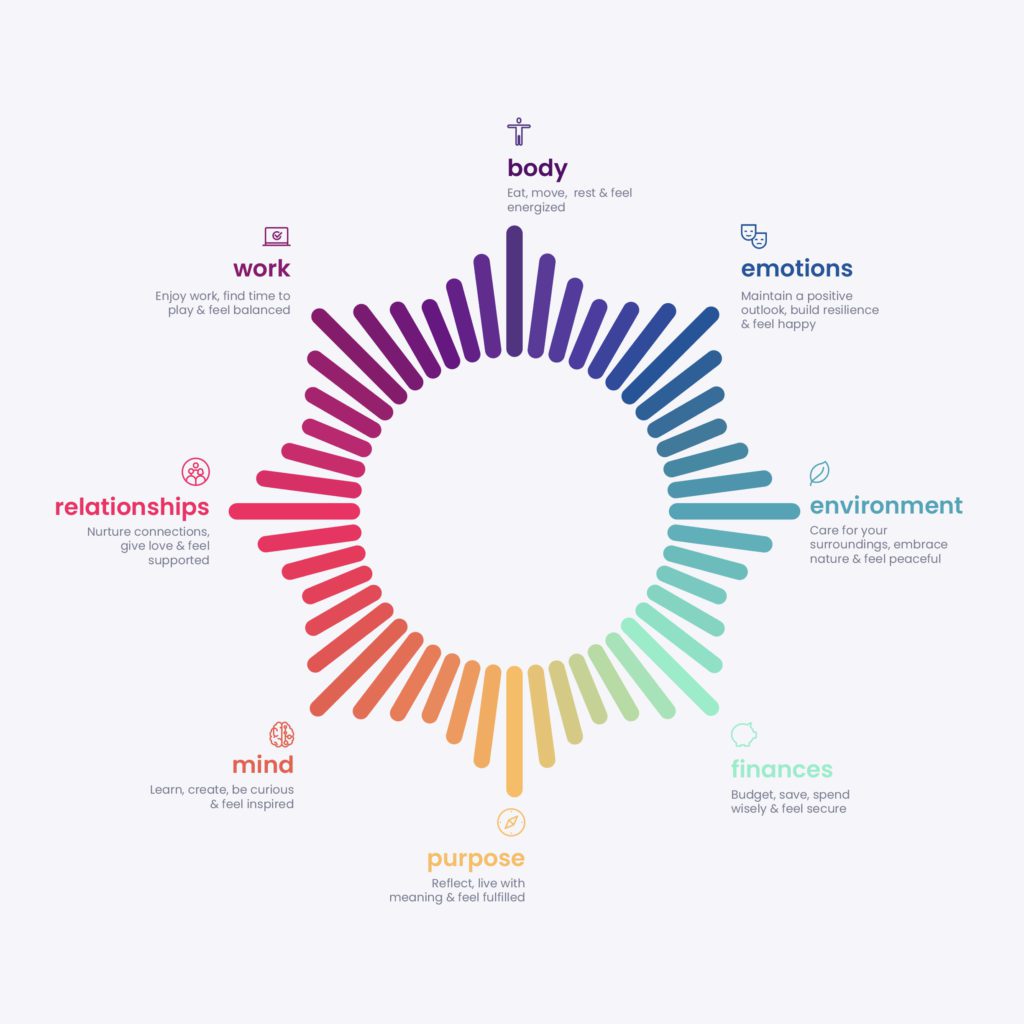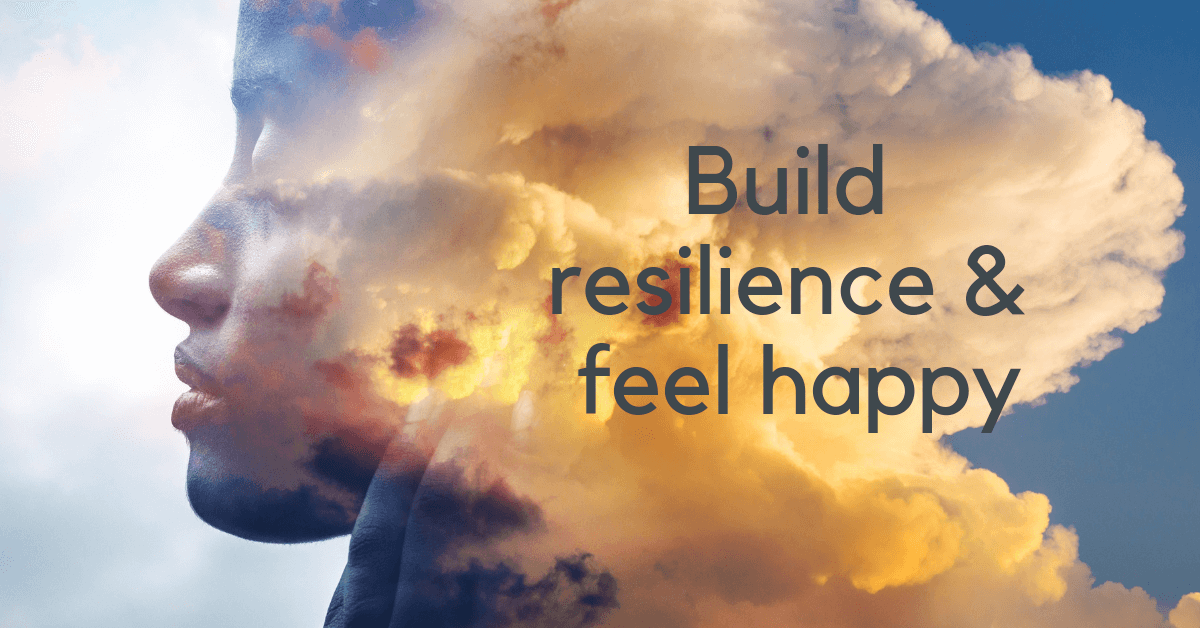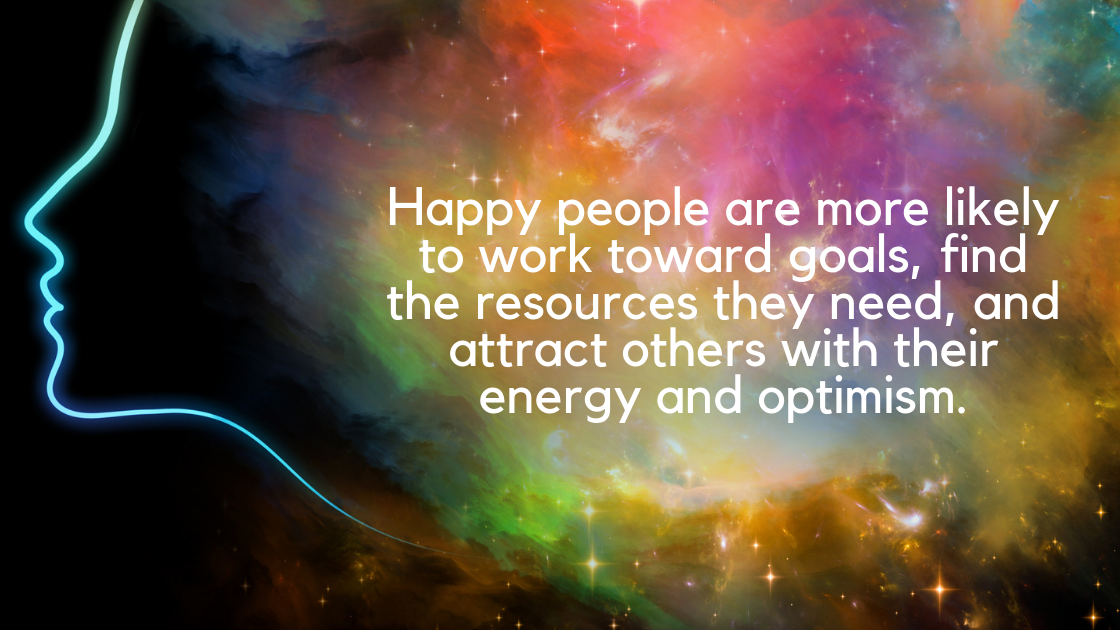How much happiness do you experience in your life?
Emotional health is the ability to cope with the ups and downs of daily life. When you’re emotionally healthy, you’re able to identify and process your emotions and you probably have an optimistic outlook. You’re resilient to stress, have confidence and the ability to express and handle a full range of emotions. You also have a lower risk of mental illness.
If you struggle with your emotional health, you might experience emotional outbursts, and get easily upset by unwanted or unexpected events. And if you’re one of the 1 in 5 adults who suffer from a mental illness like depression or anxiety, strengthening your emotional health may help you cope with mental illness. Of course, if you feel depressed or anxious—or if you ever feel like you need help, please talk to your health care professional.
Your emotional health affects the other health dimensions
- Emotions → body: Chronic stress puts you at higher risk of heart disease and digestive problems.
- Emotions → work: Mindfulness, defined as awareness of the present moment, improves attention and can lead to better productivity at work.
- Emotions → relationships: Strong self-esteem helps to build healthy relationships, including intimate ones.
Improve your emotional health
Though we’re often conditioned to jump in and make drastic changes for a quick fix, tackling one habit at a time may be just what you need to start down a path of improving your emotional health. If you’re struggling, reach out. Know you are not alone. Talk to a health professional or someone you trust. Three things to do that might improve your emotional health:
- Breathe! Take 2 to 5 min to breathe deeply after you wake up, or just before bedtime. Close your eyes, place one hand on your chest and the other on your belly, and slowly inhale and exhale through your nose. Feel how air enters and exits the belly and chest.
- Practice positive thinking. At the end of each day, think of three things that you’re grateful for. Try writing them down.
- Journal. Take a few minutes each day to write down your thoughts and feelings (negative or positive!) in a journal. This can help you re-prioritize your thoughts and feelings, and identify things you might be stressed about.
Emotional health is really important, but so are the other health dimensions.

Read about all eight dimensions of health. They overlap, intertwine, and impact one another. If you’re doing well in each of these dimensions, you’ll stay healthier and happier. Also, check out Carebook’s Facebook page where we’re building a healthy, happy community. We’d love to hear the things you do to stay emotionally healthy.
Learn more
- Mental Health vs. Emotional Health…Are they related?
- Stress and Heart Health
- What is mindfulness?
- 11 tips on building self-esteem in children
- 10 Ways Low Self-Esteem Affects Women in Relationships
- Relaxation techniques: Breath control helps quell errant stress response
- 83 Benefits of Journaling for Depression, Anxiety, and Stress Management
Resources
- Key substance use and mental health indicators in the United States: Results from the 2015 National Survey on Drug Use and Health (HHS Publication No. SMA 16-4984, NSDUH Series H-51). [Internet]. Center for Behavioral Health Statistics and Quality.; 2016. Available from: http://www.samhsa.gov/data/
- Dimsdale JE. Psychological Stress and Cardiovascular Disease. J Am Coll Cardiol. 2008 Apr;51(13):1237–46.
- Morrison AB, Jha AP. Mindfulness, Attention, and Working Memory. In: Ostafin BD, Robinson MD, Meier BP, editors. Handbook of Mindfulness and Self-Regulation [Internet]. New York, NY: Springer New York; 2015 [cited 2019 Jan 14]. p. 33–45. Available from: http://link.springer.com/10.1007/978-1-4939-2263-5_4
- Erol RY, Orth U. Development of self-esteem and relationship satisfaction in couples: Two longitudinal studies. Dev Psychol. 2014;50(9):2291–303.
- Lally P, Gardner B. Promoting habit formation. Health Psychol Rev. 2013 May;7(sup1):S137–58.
- Jerath R, Edry JW, Barnes VA, Jerath V. Physiology of long pranayamic breathing: Neural respiratory elements may provide a mechanism that explains how slow deep breathing shifts the autonomic nervous system. Med Hypotheses. 2006 Jan;67(3):566–71.
- Sansone RA, Sansone LA. Gratitude and well being: the benefits of appreciation. Psychiatry Edgmont Pa Townsh. 2010 Nov;7(11):18–22.
- Pennebaker JW. Writing About Emotional Experiences as a Therapeutic Process. Psychol Sci. 1997 May;8(3):162–6.


